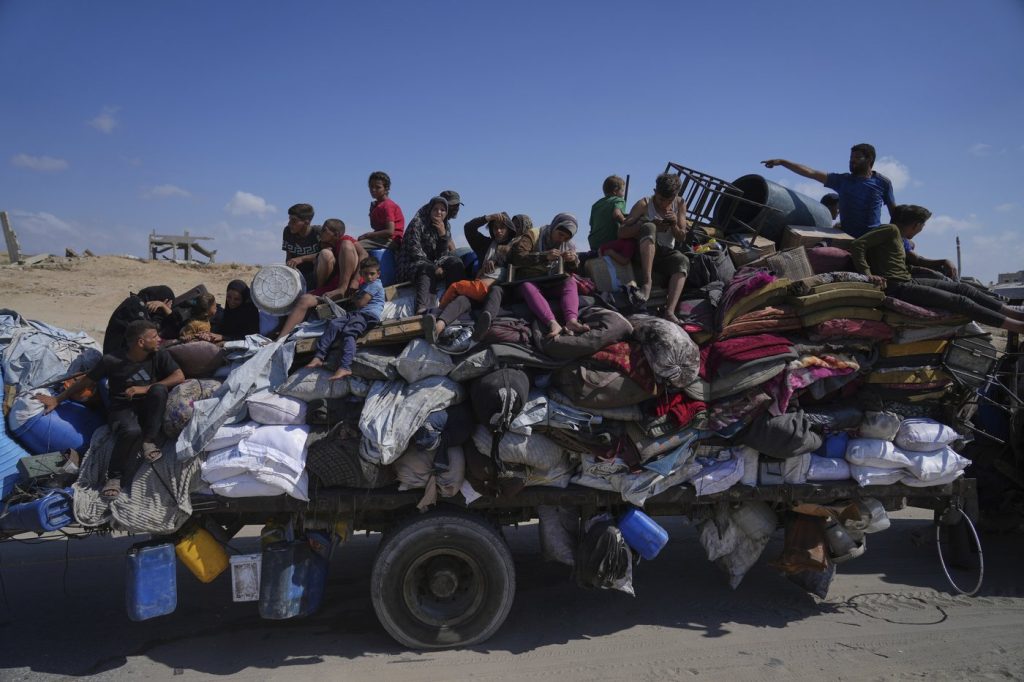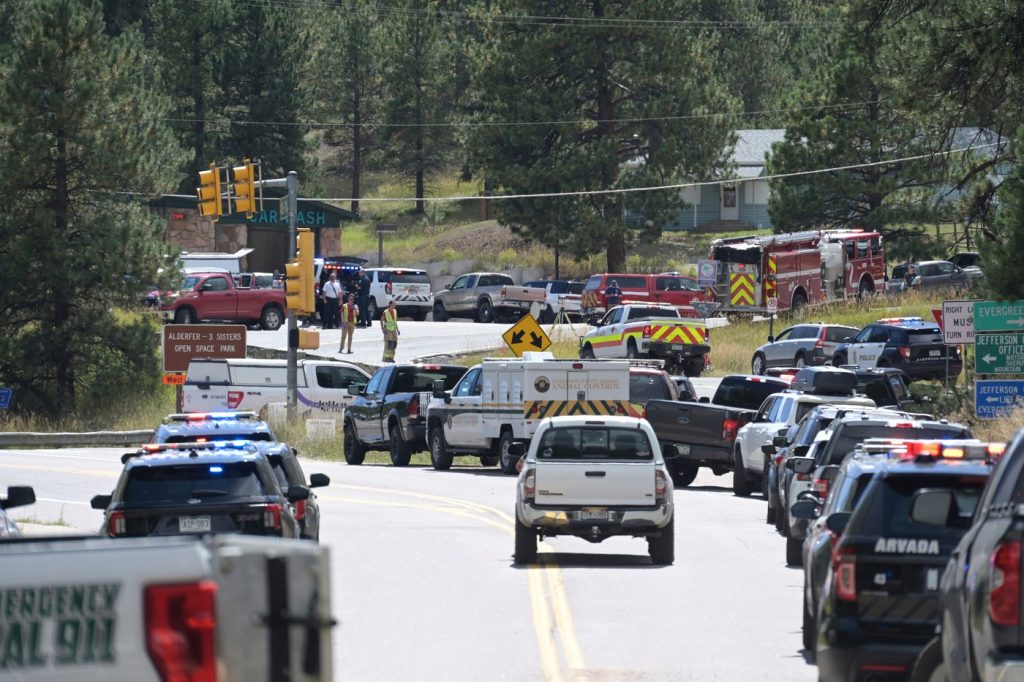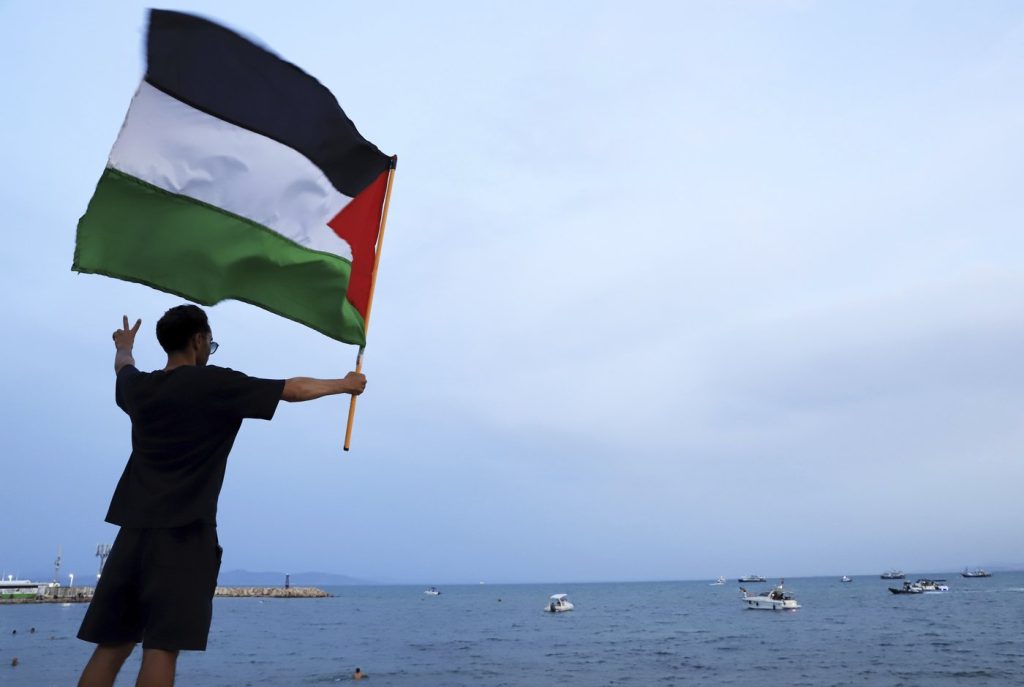DEIR AL-BALAH, Gaza Strip (AP) On Tuesday, Israel's military issued a full evacuation order for residents of Gaza City, intensifying its offensive aimed at taking control of what is considered Hamas' last stronghold. As conditions deteriorate, hundreds of thousands of Palestinians are reportedly facing severe shortages of food and clean water.
The evacuation alerts, marking the first such comprehensive call for residents to leave, came just hours before an Israeli strike targeted Hamas leaders in Qatar. This military action further escalates Israel's campaign against the militant group, jeopardizing ongoing negotiations to end the hostilities in Gaza.
Reports from Associated Press journalists noted a significant increase in the number of civilians fleeing Gaza City, with lines of vehicles packed with belongings stretching into the distance. Families were seen transporting their belongings atop trucks and makeshift carts, as many seek shelter away from the escalating violence.
Despite this exodus, many remain trapped due to the high costs associated with transportation and housing. The Site Management Cluster has highlighted firsthand accounts indicating that those displaced are struggling to find adequate shelter. "We were displaced two days ago, and here we are, my wife and I, unfortunately, sleeping in the street,” said Hazem Abu Reyash, lamenting the lack of basic necessities.
It is estimated that about 1 million Palestinians, nearly half of Gaza's population, reside in the northern regions, particularly around Gaza City. Many have been forced to relocate multiple times but are uncertain if moving south will guarantee their safety. "We don’t know if God will make things easier for us. God willing, they’ll hit us with nuclear weapons, and we’ll find relief," Mohammad Ashraf expressed in desperation.
In the past two days, Israel reported the destruction of 50 high-rise buildings in Gaza City, claiming they were utilized for military purposes by Hamas. Prime Minister Benjamin Netanyahu noted that these demolitions represented only the beginning of a larger ground incursion. First responders have reported casualties, with two survivors and two bodies retrieved from one of the destroyed buildings, and many more believed to be trapped beneath the rubble.
The United Nations agency overseeing Palestinian refugees has reported that the bombardment has rendered many families homeless, with countless individuals now living on the streets without access to basic needs. Israeli officials have encouraged fleeing Palestinians to move to a designated humanitarian zone in southern Gaza, promising humanitarian assistance for those who comply. However, aid organizations warn that the necessary infrastructure to support these displaced families is severely lacking.
In a show of defiance, dozens of health care workers and residents in Gaza City protested the evacuation orders, with Dr. Muneer al-Boursh stating, "We will never leave our land... health care workers won't leave." As tensions rise, the atmosphere surrounding medical facilities remains fraught, exacerbating the stress felt by medical staff and patients alike.
In Jerusalem, families of hostages appealed to Israeli authorities to reconsider their military actions in Gaza City. Iair Horn, who was previously held captive by Hamas, urged a more diplomatic approach for the release of hostages still held in Gaza, advocating for negotiations rather than military offensives.
The U.N. humanitarian agency revealed that the costs to evacuate to southern Gaza have soared over $1,000, making it unattainable for many. Current initiatives are in motion to deliver temporary shelters to Gaza; however, over 86,000 tents and supplies are pending clearance for entry as of last week. Israel's defense authorities acknowledged that 1,500 aid trucks, primarily carrying food, entered Gaza the previous week, with future plans to provide thousands of tents.
The conflict, which escalated after Hamas militants abducted 251 individuals on October 7, 2023, has resulted in significant casualties. Over 64,000 Palestinians have reportedly been killed in Israel's retaliatory campaign, with an alarming number of women and children among the deceased. The destruction of urban areas has displaced approximately 90% of the Gaza population, presenting an ongoing humanitarian crisis.
Meanwhile, two Palestinian teenagers were killed in the Israeli-occupied West Bank during a military operation, with conflicting accounts regarding the circumstances of the incident. The Israeli military stated that the boys posed a threat to soldiers, a claim met with skepticism by local witnesses.
The violence has reverberated through multiple regions, highlighting the ongoing and complex nature of the conflict, underscoring the dire humanitarian situation facing countless civilians in Gaza and the West Bank alike.












